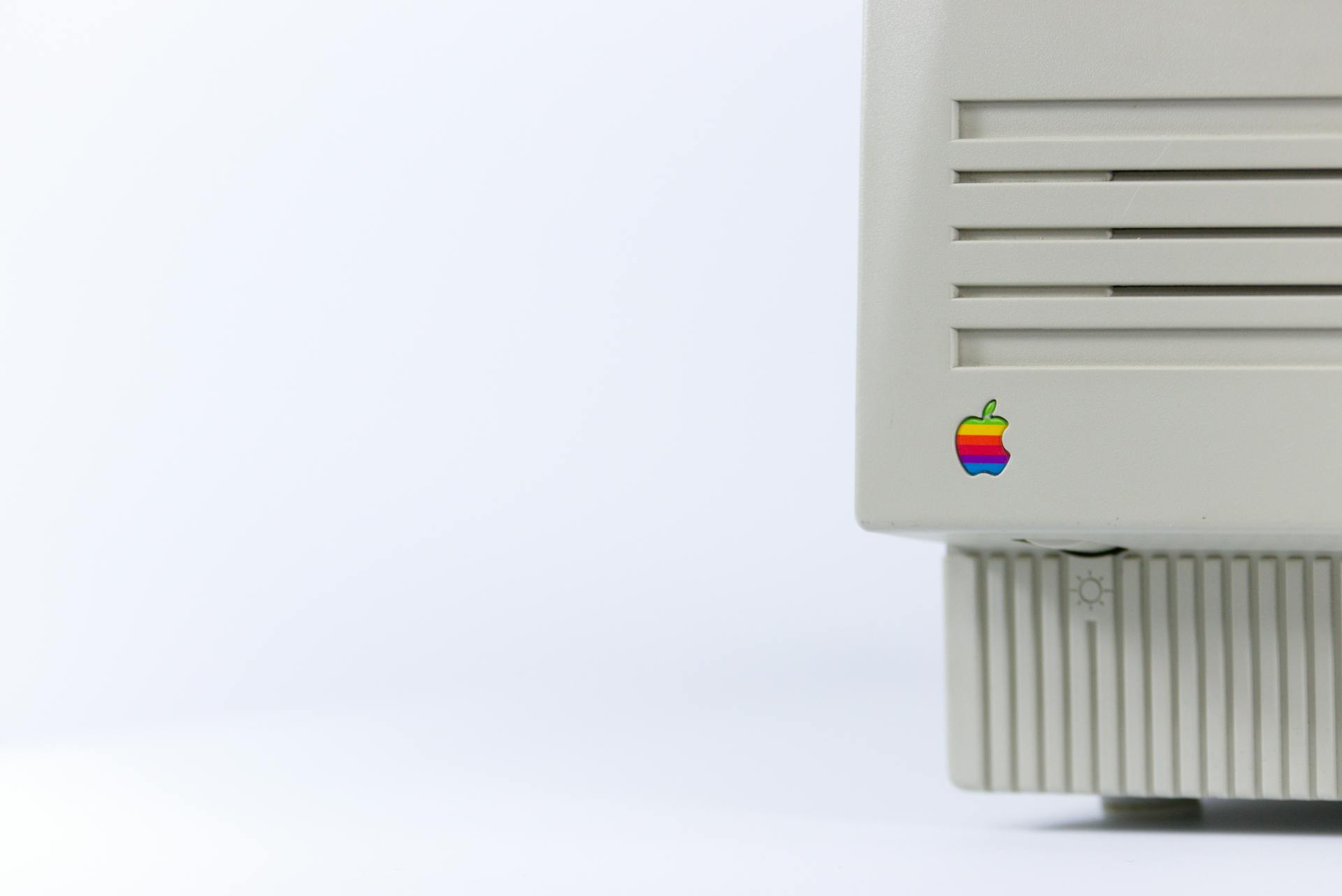
The European Union's (EU) ruling on Apple's tax dispute has sparked a global debate about corporate taxation. The EU has ordered Apple to pay back taxes of around $14.5 billion to Ireland.
This massive sum is a result of the EU's investigation into Apple's tax arrangements in Ireland. The EU found that Apple had received preferential treatment from the Irish government, allowing it to pay a tax rate of just 0.005% on its profits in 2014.
The EU's decision has significant implications for multinational companies operating in the EU. It sets a precedent for how corporate taxes will be treated in the region.
Intriguing read: What Is the Irish Corporate Tax Rate
EU Court Ruling
The EU Court ruling was a significant development in Apple's tax dispute. The European Commission ordered Apple to pay back €13 billion in unpaid taxes to Ireland, citing a sweetheart deal that gave the company an unfair advantage.
This ruling was the result of a 10-year investigation into Apple's tax arrangements in Ireland. The Commission found that Apple had paid an effective corporate tax rate of just 0.005% in 2014.
Readers also liked: Etfs Ireland Tax

The Commission's decision was based on the fact that Apple had created two separate Irish subsidiaries, Apple Sales International and Apple Operations International, which were not subject to Irish corporate tax. This allowed Apple to avoid paying taxes on its profits.
The EU Court upheld the Commission's decision, ruling that Apple's tax arrangements in Ireland were indeed state aid. The Court found that the Irish government's treatment of Apple was not in line with the EU's state aid rules.
If this caught your attention, see: GIFT International Financial Services Centre
Background and Context
The EU's fight against sweetheart tax deals for big corporations began eight years ago with a ruling that Ireland had granted Apple a sweetheart deal. This deal allowed Apple to pay almost no taxes across the European bloc for 11 years.
Ireland's tax breaks were so lavish that Apple's effective corporate tax rate on its European profits dropped from 1% in 2003 to a mere 0.005% in 2014. Apple has disputed these figures, but the numbers are striking.
The EU's ruling was part of a series of aggressive moves to hold US businesses accountable under the EU's rules on taxation, competition, and privacy.
Intriguing read: How Many Years Do You Depreciate a Building
Ireland's Response

The Irish government has argued that Apple shouldn't have to repay the back taxes, deeming that its loss was worth it to make the country an attractive home for large companies.
Ireland has spent years of legal wrangling trying to avoid recovering the lost taxes from Apple.
The Irish government said the issue in the Apple case is now of historical relevance only.
The process of transferring assets to Ireland will now begin.
Ireland's low corporate tax rate, one of the lowest in the EU, made it Apple's base for Europe, the Middle East, and Africa.
The European Commission argued that Ireland's low tax rate for Apple was an unfair subsidy.
Tove Maria Ryding from the European Network on Debt and Development welcomed the ECJ's decision but stressed that the tax problem is more than just one rotten apple.
What we urgently need is a fundamental reform that can give us a tax system that is fair, effective, transparent, and predictable.
See what others are reading: The One Fixed Asset That Is Not Depreciated Is
Frequently Asked Questions
Did Apple lose the fight against the EU tax order against Ireland?
Yes, Apple lost its court fight over a €13 billion Irish tax bill. The EU's court ruling is a significant blow to Apple's efforts to avoid paying the massive tax bill.
What was the result of the Apple tax case?
The European Union Court of Justice ruled that Ireland must recover €13 billion in unpaid taxes from Apple, deeming the country's tax arrangement with the tech giant as unlawful aid. Apple is required to pay back a significant amount of unpaid taxes.
Will Apple pay EU fine?
Yes, Apple must pay billions in back taxes to the EU as per the European Union's top court ruling. The exact amount is yet to be determined.
What is the Apple tax issue in Ireland?
The Apple tax issue in Ireland refers to a €13 billion tax bill owed by Apple, resulting from a European Union Court of Justice ruling that Ireland granted Apple unlawful tax aid. The ruling targets an aggressive tax scheme used by Apple to minimize its tax liability in Ireland.
How much tax does Apple pay to Ireland?
Apple owes Ireland approximately €14 billion in back taxes, which is about 16% of Ireland's total tax revenue from the previous year. This amount includes interest on the unpaid taxes.
Sources
- https://www.lemonde.fr/en/european-union/article/2024/09/10/eu-court-orders-apple-to-pay-ireland-13-billion-in-back-taxes_6725465_156.html
- https://www.bruegel.org/analysis/one-bad-apple-decision-eu-tax-ruling-entrenches-distortions
- https://www.theguardian.com/technology/article/2024/sep/10/apple-loses-eu-court-battle-tax-bill-ireland
- https://www.bbc.com/news/articles/ckgwkwxr4eqo
- https://www.icij.org/investigations/paradise-papers/top-eu-court-rules-apple-owes-ireland-over-14b-in-back-taxes/
Featured Images: pexels.com


